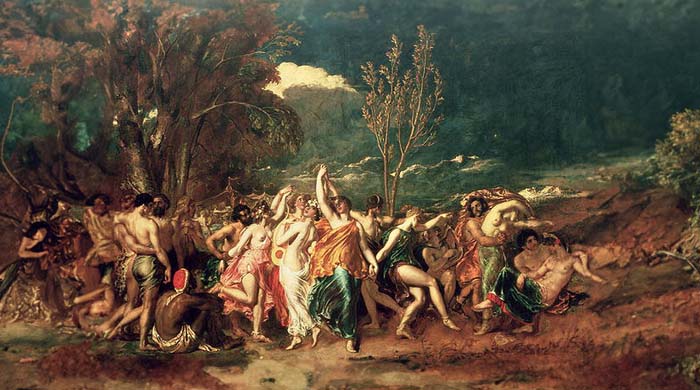Genesis 6:2
That the sons of God saw the daughters of men that they were fair;
and they took them wives of all which they chose.
The words "sons of God" found in Genesis 6:2 have been variously translated, but the translations fall into two main groups:
1. The sons of God refer to the descendants of Seth, whereas the daughters of men were the descendants of either Cain or the other sons and daughters of Adam whose names have not been recorded (Gen. 5:4).
2. The sons of God were fallen angels.
It is most evident that the word "God" in "the sons of God" is set over against "men" in "the daughters of Men"; the word translated "men" being a faulty rendering, for (a) the word in the original is singular, (b) it has the definite article "the," (c) it is the Hebrew word adam, and so the passage should be rendered "the daughters of the man Adam." Without the article, "Adam" denotes mankind in general, but with the article, it denotes the man Adam. Now, however godly the children of Seth may have been up to this time, they could never have been contrasted with the other descendants of Adam, for he was the father of all. Genesis is not putting into contrast two lines descended from Adam, but the sons of God, against the children of Men.
Before Moses wrote Genesis, a man lived in the land of Uz whose name was Job, and the preface to his most terrible ordeal is given in Chapter 1 of that Book. In Job 1:6, we find that "there was a day when the sons of God came to present themselves before the Lord, and Satan came also among them." Now, if the sons of God here referred to the godly among men, surely Job, not Satan, would have been among them according to Job 1:1. It is assumed that the title "son of God" is used of men in the Old Testament, but this is not so. Job 1:6, Job 2:1, Job 38:7, Psalm 29:1, Psalm 89:6, and Daniel 3:25 all refer to angels. The passage in Hosea 1:10 is not the translation of the Hebrew Beni-ha-Elohim, but Beni-el-chai. Moreover, the LXX (the Septuagint, the Greek Old Testament) translates the expression in Genesis 6:2 as "angels". Jude 1:6 clarifies that there was a fall among angels; they left their own estate (oiketerion 2 Cor. 5:2, a spiritual body), and their transgression was "in like manner" to the sons of Sodom. This fall occurred "in the days of Noah" (1 Pet. 3:20; 2 Pet. 2:4).
The progeny of this union are called "giants" Nephilim or "fallen ones." They were monsters both in size and in sin, and it was the express purpose of the flood to blot them out and to recommence a new world with the children of the one man whose pedigree was uncontaminated, namely Noah. It is beyond the ability of any man to demonstrate how it could come about that the marriage of a man of the line of Seth to a woman descended equally from Adam should or could produce such a monstrous race. This subject is part of a larger one, namely the presence of two seeds on the earth, and the reader is directed to articles dealing with the Fallen Angels, Seed, Nepihlim, and Giants for further teaching on the subject.

